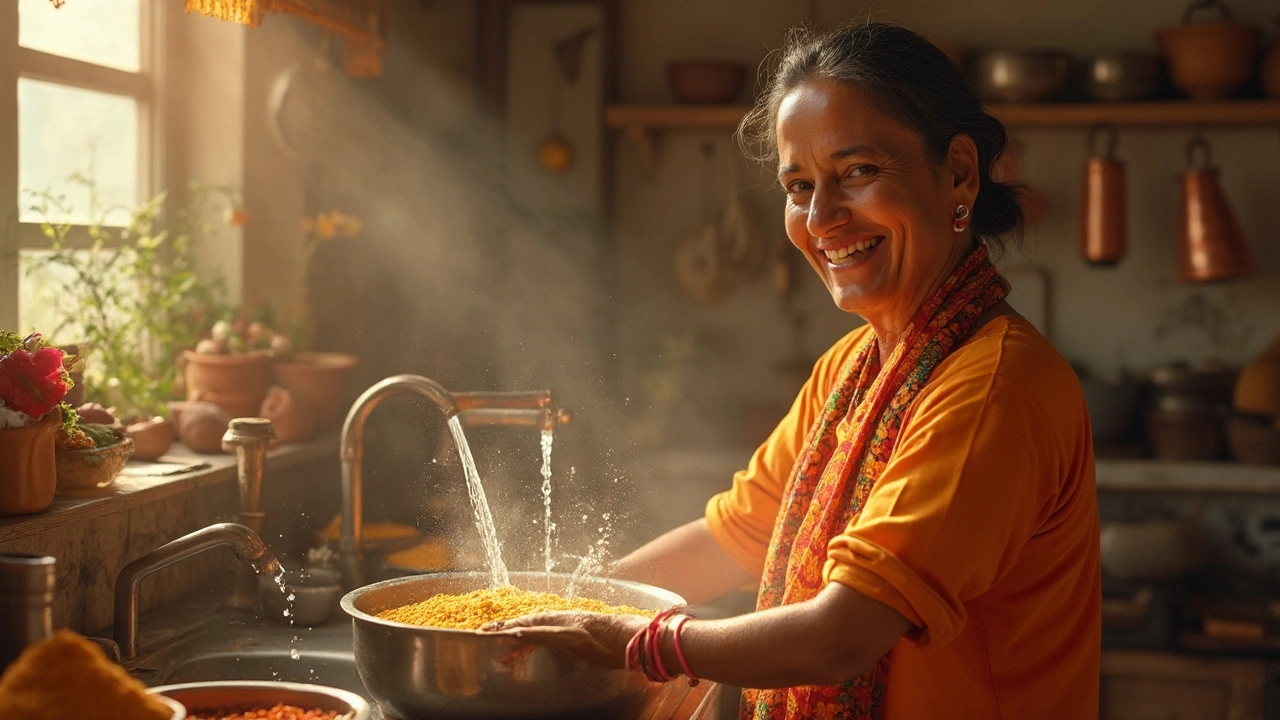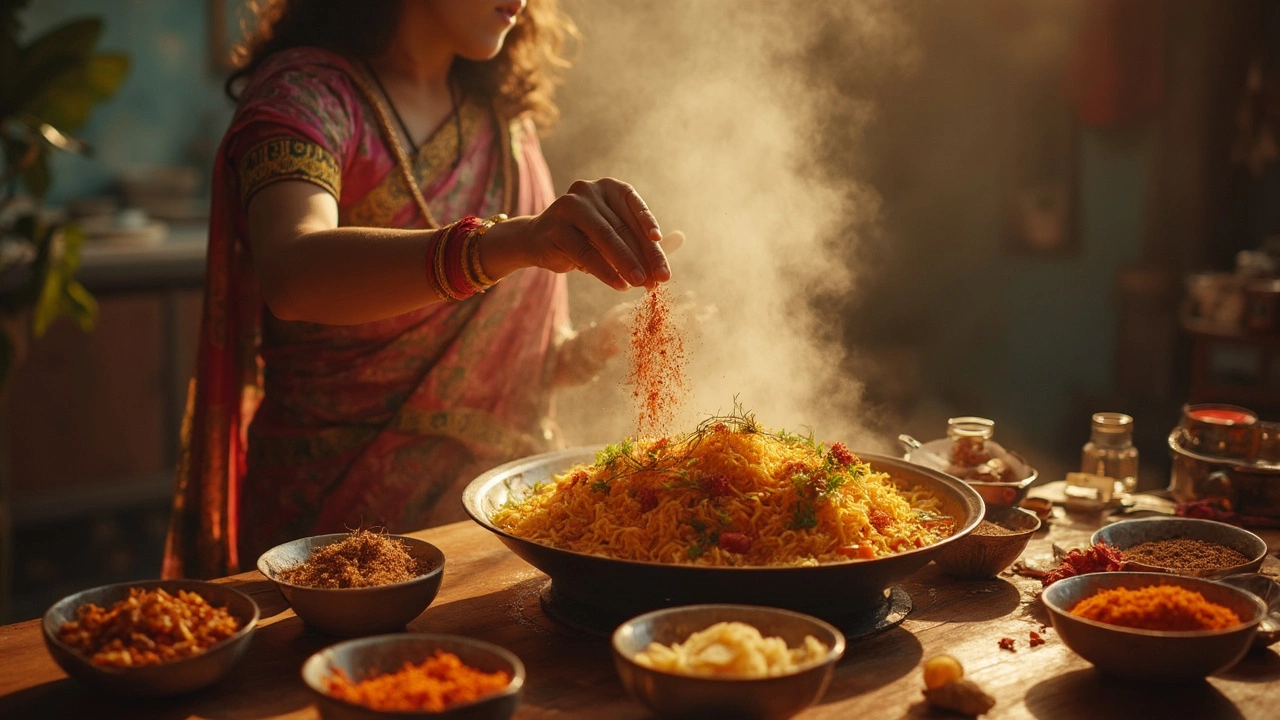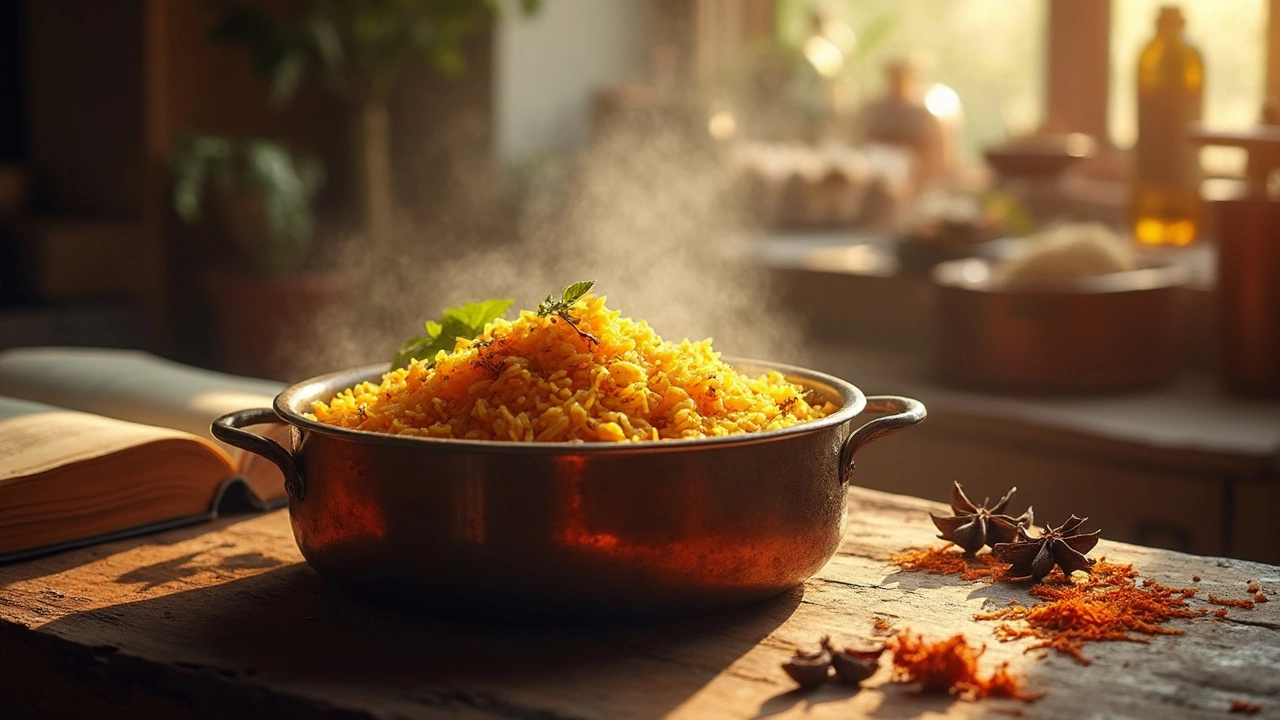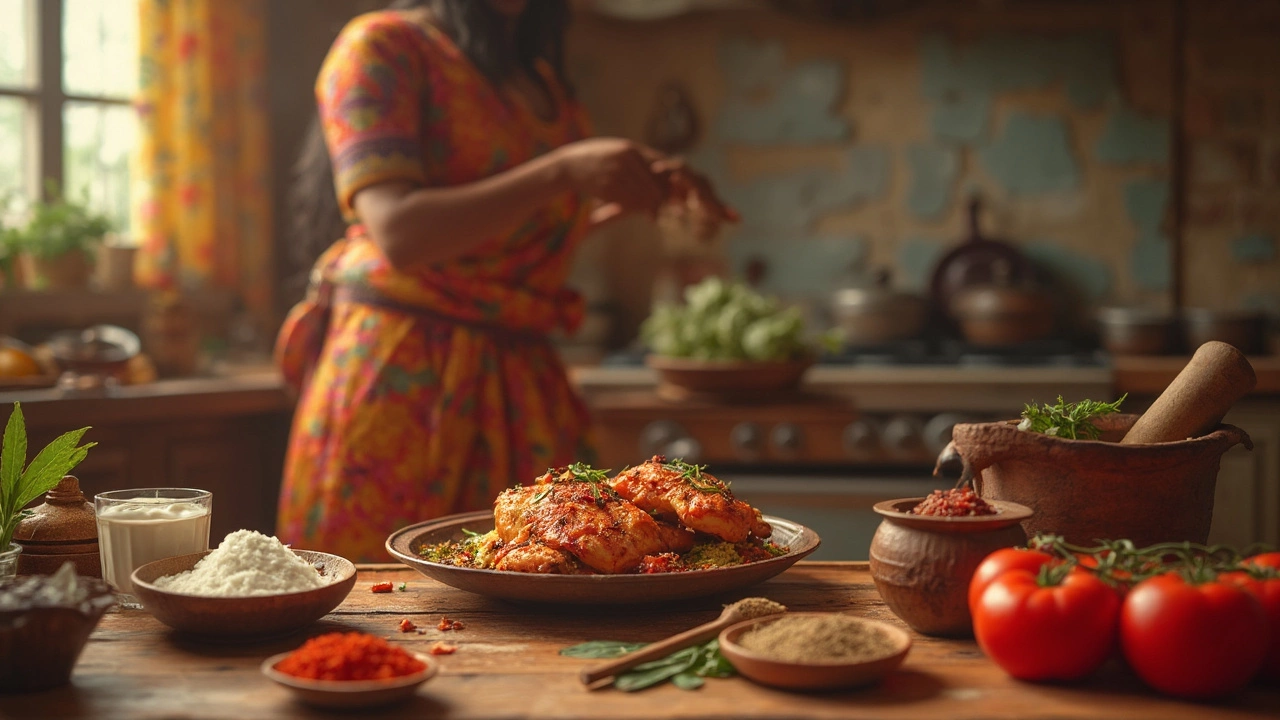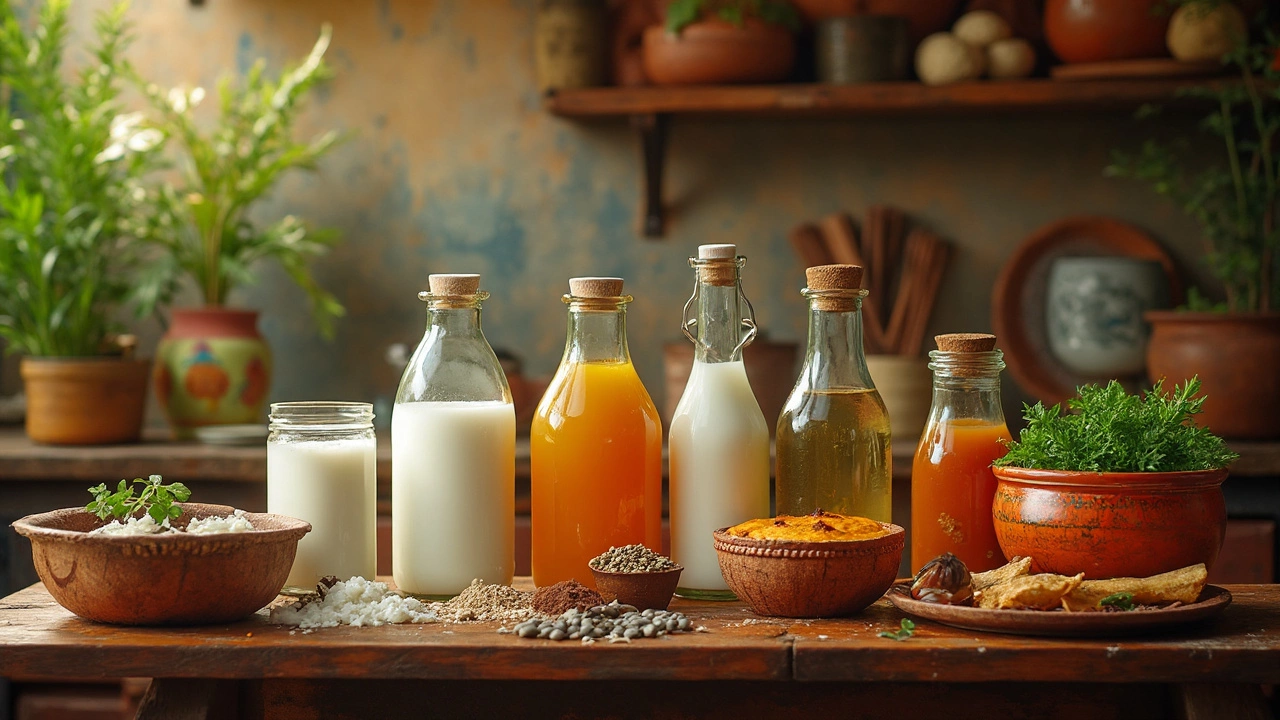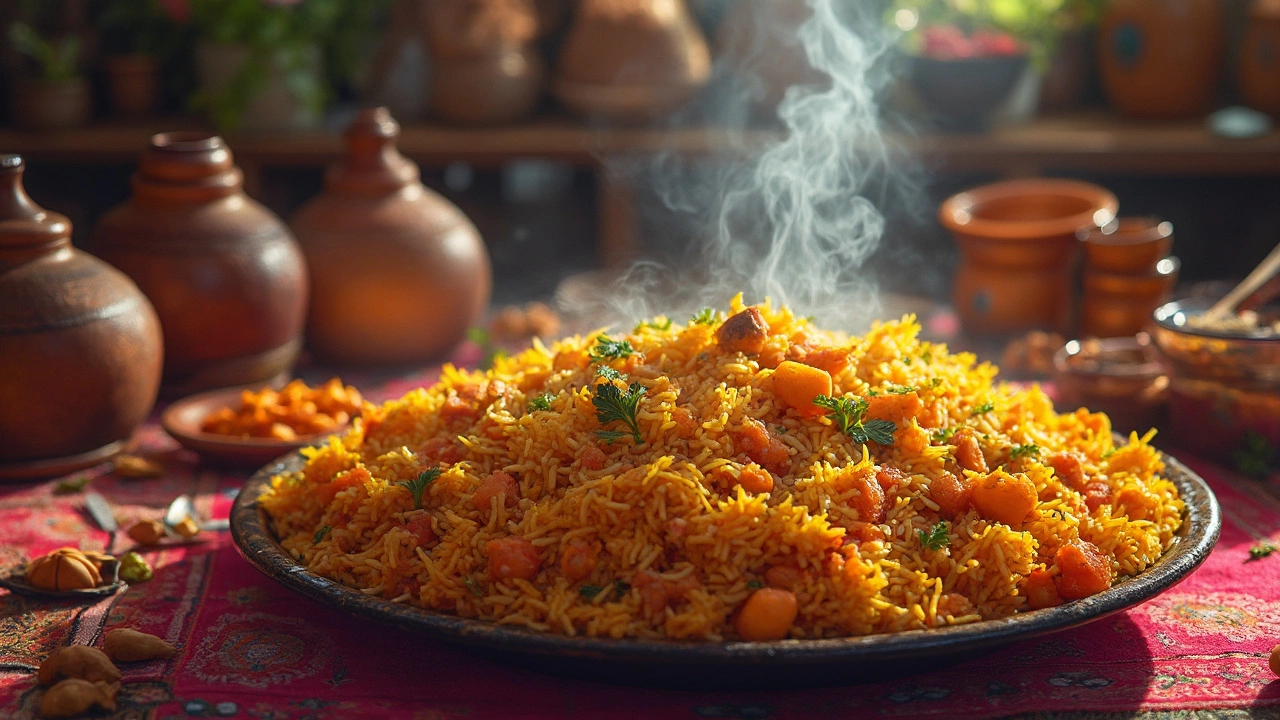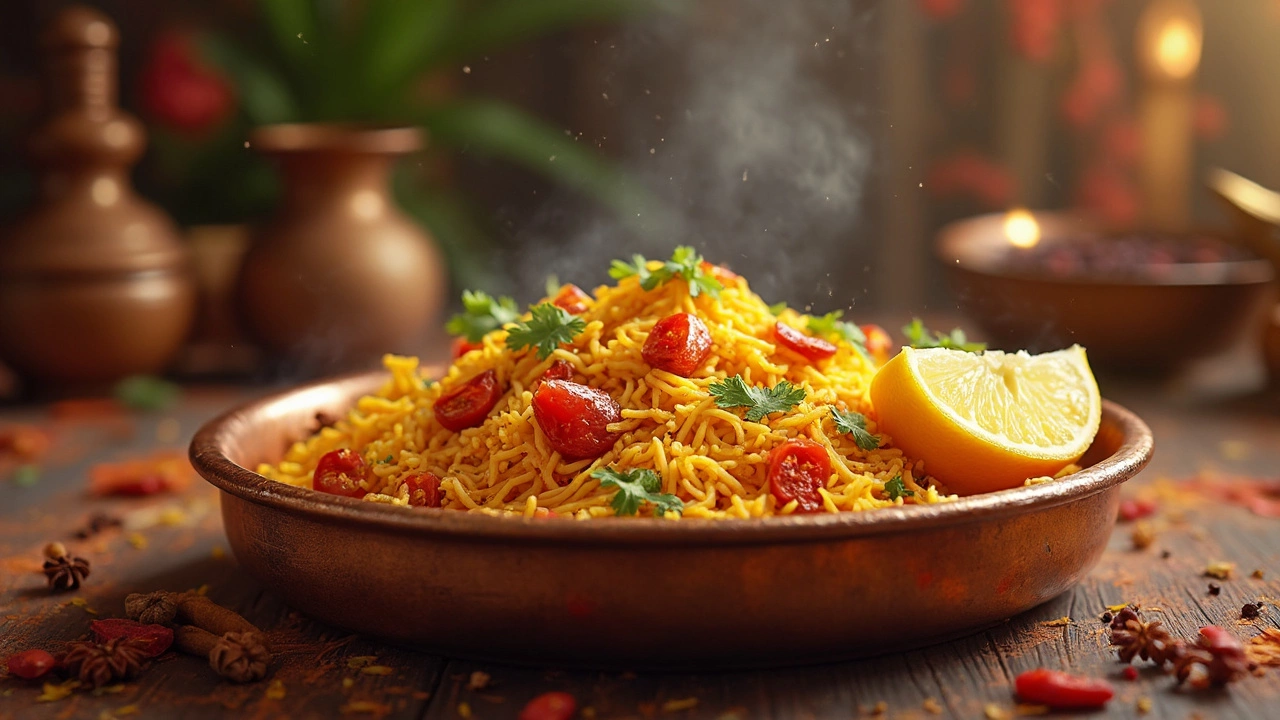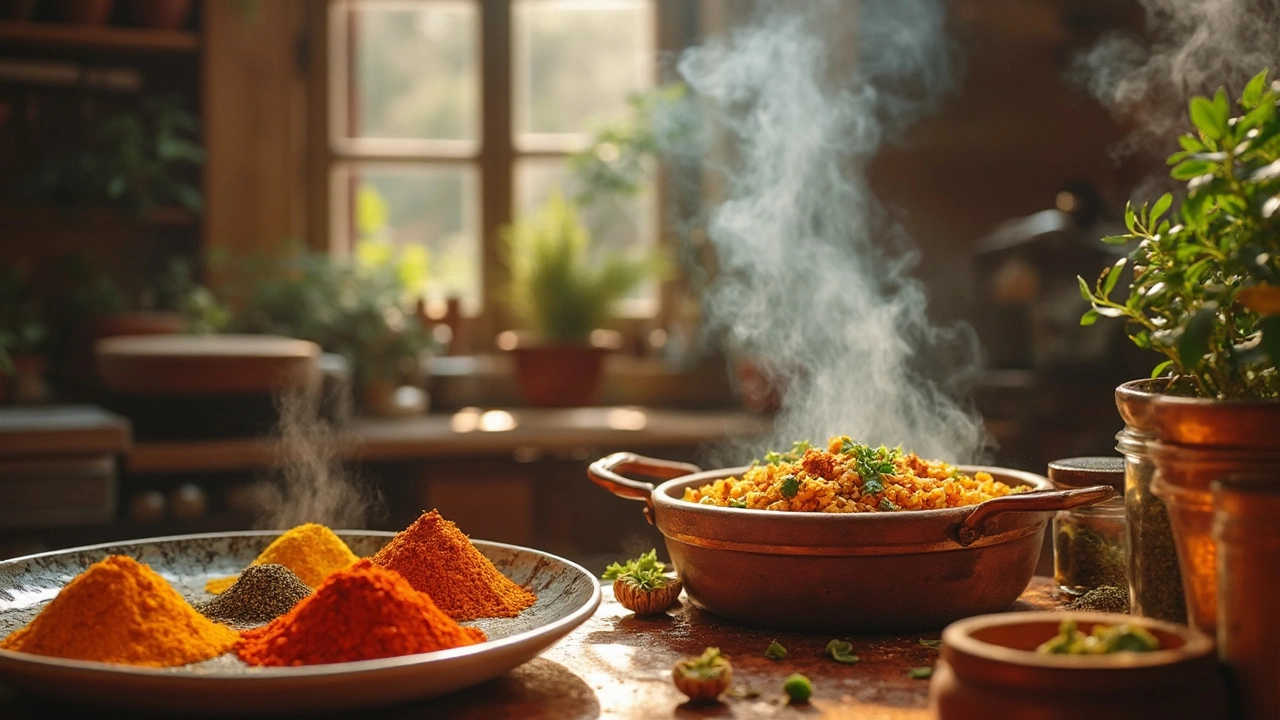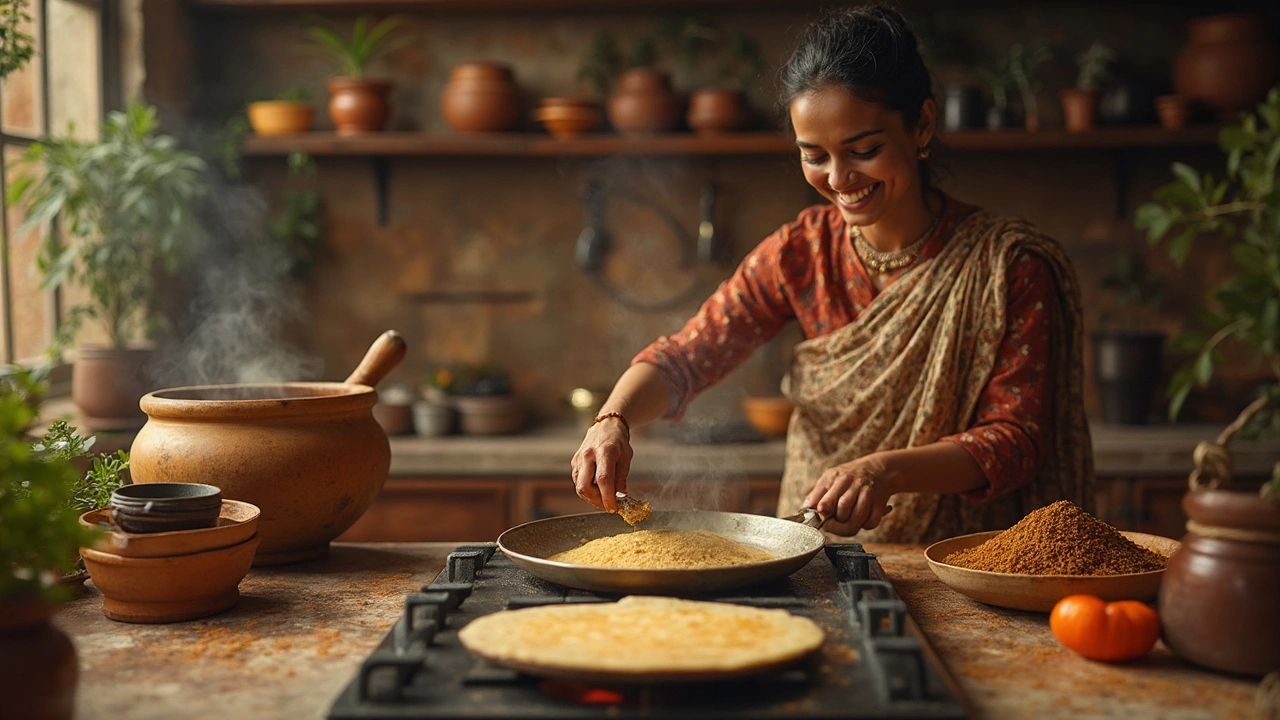Cooking Tips: Simple Tricks to Boost Your Indian Kitchen
If you love Indian food but want to spend less time stressing over the stove, you’re in the right place. Below are practical tips you can start using today, whether you’re making a quick dal or a festive biryani. These ideas come from our most‑read articles and everyday kitchen experience, so they’re tried and true.
Everyday Hacks for Faster Prep
First up, speed up your prep work. Keep a small bowl of water next to your cutting board – dip sliced onions in it for a minute and the sting fades fast. Store whole spices in airtight jars and toast them lightly before grinding; the aroma pops instantly, and you’ll need less powder to get the same punch. Also, batch‑cook rice and lentils on the weekend, then freeze in portion‑sized bags. You’ll have a ready base for sambar, khichdi, or a quick pulao without starting from scratch.
Flavor Boosters You Can’t Miss
Flavor is the heart of Indian cooking, and a few tweaks can take a dish from good to great. Add a knob of ghee at the end of cooking – it rounds off sharp spices and adds a silky texture. When sautéing mustard seeds, let them pop fully before adding chilies; this prevents bitterness and releases a nutty note. For curries, finish with a splash of fresh lemon juice or a few curry leaves fried in hot oil; the bright zing lifts the whole pot.
One common question we get is whether to keep the lid on when cooking chutney. The rule is simple: keep the lid off for raw or fresh chutneys so the flavors stay bright, but cover the pot for cooked chutneys. The steam helps thicken the mixture without burning, and you’ll end up with a smooth consistency every time.
Biryani fans often wonder why the rice sometimes turns mushy. The secret lies in rinsing the rice at least three times until the water runs clear, then soaking it for 20‑30 minutes. This removes excess starch and keeps the grains separate. When you layer the rice with meat or vegetables, sprinkle a pinch of saffron-infused milk on top – it adds color, aroma, and a subtle sweetness that makes the biryani unforgettable.
If you’re short on time but still want that authentic tandoori flavor, use a very hot grill pan instead of a full tandoor. Brush the chicken with yogurt, a dash of lemon, and your favorite spice mix, then sear on high heat for 3‑4 minutes per side. The charred edges mimic the smoky taste, and you avoid the myth that tandoori must be cooked in a clay oven.
For healthy eating, swap heavy cream with coconut milk in rich gravies. Coconut milk adds body and a gentle sweetness without the extra saturated fat. Pair it with a handful of toasted cashews for texture – you get a creamy sauce that’s still light enough for a weekday meal.
Finally, keep a spice cheat sheet on your fridge. Write down the typical quantity of each spice for common dishes (like 1 tsp cumin for 2 cups rice) and refer to it while cooking. It speeds up decisions, reduces mistakes, and builds confidence, especially when you’re trying a new recipe.
Try these tips on your next kitchen adventure and notice the difference right away. Small changes add up, making Indian cooking easier, faster, and more delicious every single day.
How to Cancel Out Bitter Taste in Food: Simple Science & Practical Kitchen Tips
Tired of bitterness ruining your meals? Discover proven science-backed tricks to cancel bitter taste, plus handy kitchen hacks any home cook can use.
Do You Need to Rinse Dal? The Answer Might Surprise You
Rinsing dal might seem like a small step, but it can completely change your dish. This article explores whether rinsing dal is actually necessary, what happens if you skip it, and how it impacts taste and health. Learn the science behind rinsing plus practical kitchen tips from seasoned cooks. Make every dal recipe simpler—and tastier—with these insights.
Secret Ingredient for Biryani: What Really Makes It Special?
Wondering what gives biryani that unforgettable flavor? This article gets straight into the heart of the dish, breaking down what actually counts as the 'secret ingredient.' You'll get facts, tips, and practical advice, whether you're a home cook or ordering from your favorite spot. Discover what matters most, what to experiment with, and how to take your biryani beyond basic. Get the real scoop on making biryani stand out.
Biryani Secret Ingredients: What Really Makes It Stand Out?
Ever wondered why biryani at home never tastes quite like the one from your favorite restaurant? The magic lies in a handful of secret ingredients and age-old tricks that most recipes don’t share up front. This article unpacks those hidden hero ingredients, along with tips on how to use them for perfect biryani every time. Say goodbye to bland rice and hello to flavor-packed bites. You’ll get authentic advice, practical tips, and insights that will up your biryani game instantly.
What Can I Use Instead of Lemon Juice in Tandoori Chicken? Easy Swaps for Perfect Marinades
Wondering what to use when you’re out of lemon juice for tandoori chicken? This article breaks down the best alternatives and how they work with a traditional marinade. Learn why acidity matters, which common kitchen staples work in a pinch, and how to balance flavors for juicy, tangy chicken every time. Aarini also shares tips for adjusting quantities and preserving that classic taste. Never let a missing ingredient mess up your dinner plans again.
Best Liquids to Enhance Your Chicken Curry
Explore the variety of liquids you can use in chicken curry to elevate its taste and texture. Learn how common additions like coconut milk and yogurt affect the overall dish and discover less-known options for those adventurous cooks. This guide uncovers the impact each liquid has on flavor and consistency, ensuring you make a delicious curry every time.
What Essence is Used in Biryani: Unlocking the Fragrant Secret
Biryani, a beloved dish celebrated for its vibrant flavors and aromas, owes much of its appeal to the use of special essences. These include rose water and kewra water, which lend a unique fragrance and depth to the dish. Understanding these ingredients and how they enhance biryani can elevate your cooking game. Explore practical tips and insights to perfect your own biryani masterpiece.
Why Do We Add Lemon in Biryani?
Adding lemon to biryani isn't just about a tangy kick; it's a game-changer in more ways than one. Lemons can enhance the flavors and aromas of spices, make the meat tender, and bring a delightful balance to the dish. This article breaks down these benefits and shares tips on how to perfectly incorporate lemon into your biryani. Whether you're a biryani newbie or a seasoned cook, understanding the role of lemon can uplift your culinary game.
Should Dosa Batter Be Thick or Thin? Finding the Perfect Consistency
Finding the right consistency for dosa batter can make or break your dosa-making experience. Should it be thick like pancake batter or thin like crepe? This article explores the science behind dosa batter, highlights why consistency matters, and provides tips on how to adjust your batter for perfect dosas. Get hands-on advice to troubleshoot common issues and enhance your dosa-making skills.
How to Add Flavor to Biryani for Maximum Taste
Discover how to make your biryani burst with flavor using practical, easy-to-follow techniques. From choosing the right spices to perfecting the cooking process, learn what makes a biryani unforgettable. Whether you're a cooking novice or a seasoned pro, these tips will help elevate your biryani game to new heights. Explore how simple adjustments can make a big impact on taste.
More Urad Dal in Dosa Batter: How It Changes the Game
Ever wonder what happens if you tweak the dosa batter by adding more urad dal? Discover how the texture, taste, and health benefits change with this simple adjustment. Get tips and insights into how this affects fermentation and cooking. Try it out to level up your dosa game!
The Secret to Soft Dough: Perfecting Your Roti
Discover how to achieve soft dough for making perfect roti every time. From choosing the right flour to the magic of resting time, learn the secrets that can transform your bread-making skills. Whether you're a beginner or a seasoned cook, these tips will elevate your roti game. Get ready to impress with effortlessly soft and delicious roti.

